Estimated reading time: 8 minutes
What does the average patrol rifle look like these days? For 99% of users, it’s an AR-15 with a red dot. The AR makes the perfect patrol rifle. It’s lightweight, easy to shoot, accurate, capable, and more. The AR might be the ultimate modern patrol rifle, but it’s not the first patrol rifle. Look at a few historical examples of patrol rifles before AR dominance.
Table of contents
The Early Days of The Patrol Rifle
Before the modern era, the patrol rifle wasn’t a common weapon. The police long gun of choice was the 12-gauge shotgun. Still, some progressive police departments adopted the patrol rifle throughout the years before the big push after the North Hollywood shootout. Let’s look at some historical examples of the early patrol rifle in the 20th and 21st centuries.
The Remington Model 8 (and 81)
The Remington Model 8 is a John Browning design first produced in 1905. The weapon existed in various forms and had numerous improvements until 1950. In 1908 the Model 8 was cutting edge with a semi-auto action and long recoil operating system. The weapon was fed from an internal magazine and used a rotating bolt head and a safety that most certainly inspired the AK.

While the majority of the Model 8s were for sportsmen they were quickly adopted to police use. In fact, aftermarket companies were quick to produce longer magazines to accommodate up to 20 cartridges and convert them from fixed to removable. These adaptions became popular with police forces and Remington took note. They began offering police models of the Model 8. The Remington Special Police Models came with 15-round removable magazines.
Available on GunsAmerica Now
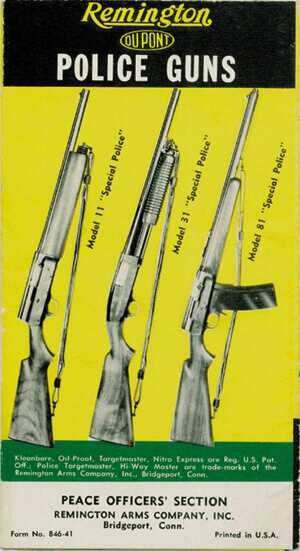
The Model 8s were issued to police in Minnesota, Texas, Missouri, Kansas, and many more. The Model 81, an evolution of the Model 8, was used by the Los Angeles Sheriff’s Department, the Nashville Sheriff’s Department, and many more. The most famed user of the Model 8 as a patrol rifle was legendary lawman Frank Hamer who used a Model 8 in .35 Remington with a 15-round magazine in the ambush that got Bonnie and Clyde.
Winchester Model 1907
The Winchester Model 1907 is a bit of an analog AR-15. It was a semi-automatic rifle that fed from a detachable magazine and fired a somewhat intermediate cartridge known as the .351 Winchester Self-Loading. These rifles were simple blowback-operated guns and as the name implies they started production in 1907 and lasted til 1957.
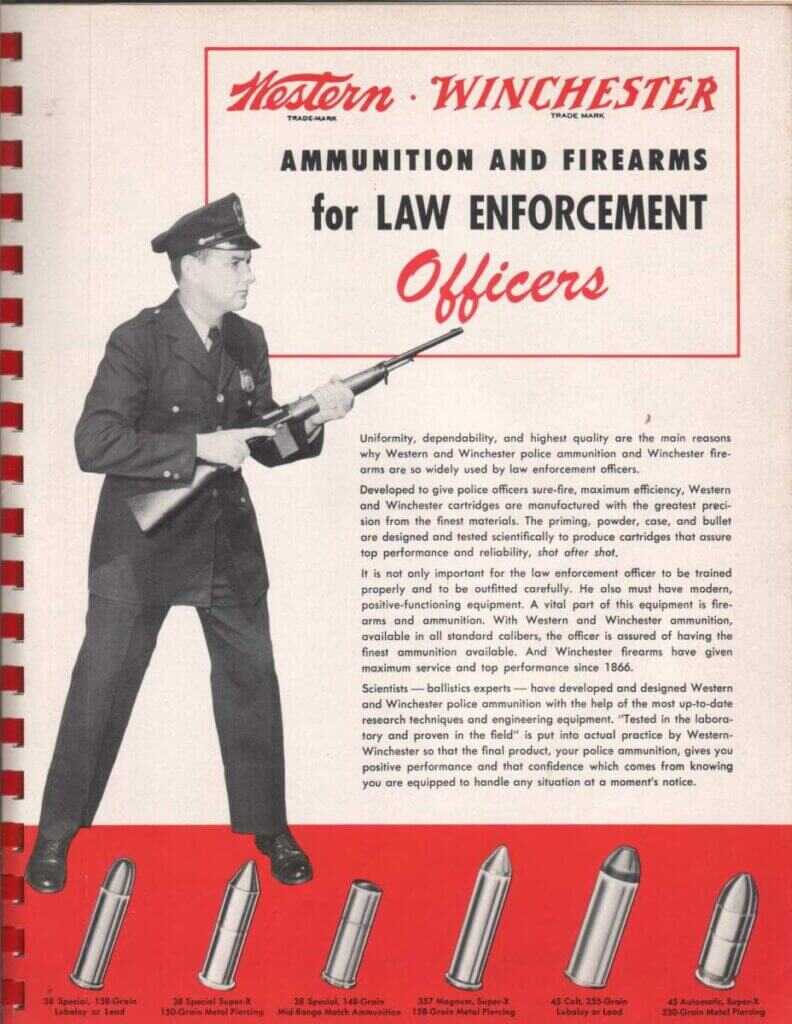
The Winchester Model 1907 was designed by T.C. Johnson, a man who would work on some of Wicnhester’s finest weapons. The Model 1907 saw almost immediate police use. Winchester produced a police model that featured a sturdy fixed rear sight, sling swivels, a larger magazine release, and a there was an optional mount for a bayonet for riot duties.

When the FBI ended a semi-auto rifle, they adopted the Model 1907. This occurred shortly after the Kansas City Massacre. They weren’t the only federal force to do so, and the Border Patrol also adopted it as a patrol rifle for Patrol Inspectors. The Maryland State Police adopted the weapon, as did numerous prisons.
The M1 Carbine
The M1 Carbine is a fascinating weapon. Its creation and adoption helped establish the need for lightweight, intermediate rifles. While the M1 Carbine didn’t have AR potential, it did share a number of its benefits. It’s lightweight, handy, relatively compact, has low recoil, is magazine-fed, and is fairly accurate. Troops in World War 2 used buckets of them, so it’s not surprising the weapon became a patrol rifle.
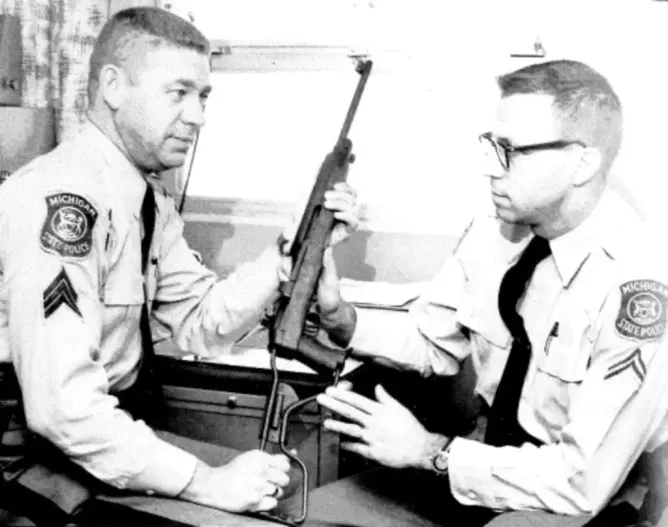
The short-stroke gas piston gun fired the .30 Carbine round. The .30 Carbine was a great short-range rifle round that had very little recoil and better range and ballistics than a pistol. It was easy to store in a police cruiser, and the gun’s short length made it very handy for urban areas. There is also the benefit of the US Military having millions of them and either selling them or giving them away to police forces.
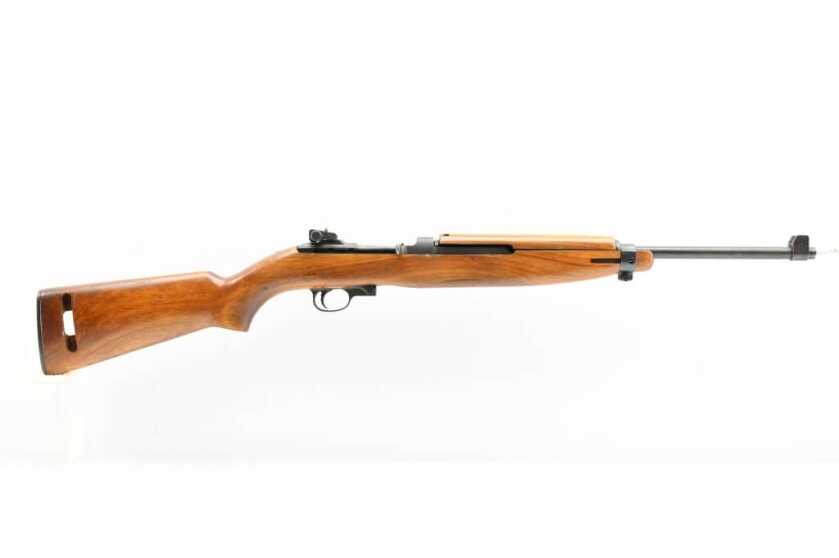
The Michigan State Police adopted the M1 Carbine, as did their friends in Detroit. Washoe County Sheriff’s Department used them, as did Humboldt County. Their most famous user was the NYPD, specifically the Stakeout Squad and famed ESU teams. They made excellent use of these light rifles.
Ruger Mini 14
In the days before the AR dominated the .223/5.56 market, the Ruger Mini 14 held a lot of sway. It was lightweight, compact, magazine-fed, and fired a light recoiling, accurate round with excellent range. It’s not a surprise that the Mini-14 became a popular option for police, especially in the 1980s, 1990s, and the early 2000s.

It’s tough to remember, but ARs were widely available but very expensive. Police departments who kept a tight count of their beans likely didn’t see much difference between the AR and the Mini 14. The Mini 14 uses a short-stroke gas piston and was built to be a smaller version of the M14. There are several differences, but it looks and handles like a smaller version of the M14.
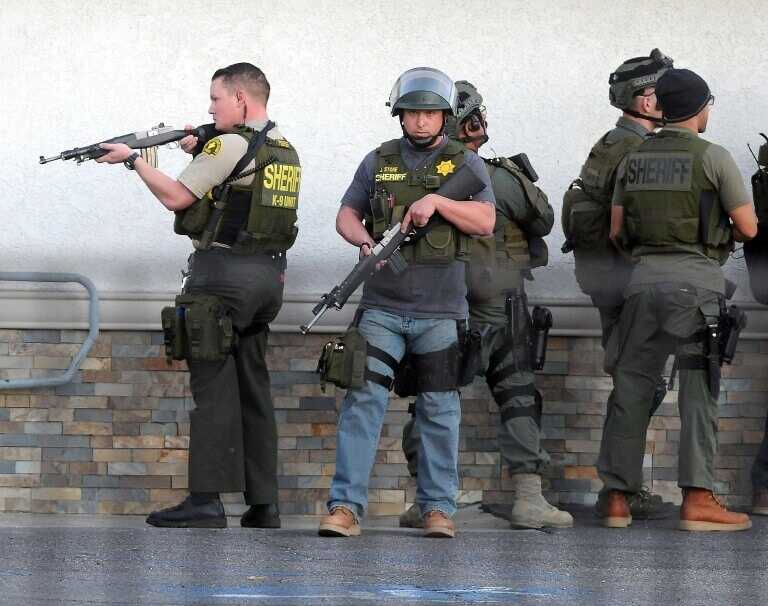
The Mini 14 seemingly still serves as a patrol rifle in some areas. San Bernadino Sheriff’s Department famously used the guns during the 2015 San Bernadino attack. Historically, police forces in Ohio, California, North Carolina, and Nevada have issued the Mini 14, and some likely still issue the weapon. The biggest user was the NYPD ESU teams in the 1980s and 1990s.
Ruger Police Patrol Carbine
The Ruger Police Carbine was never super successful as a patrol rifle, but I feel it deserves a mention. The Police Carbine predates the AR as the standard and the general idea was to offer police a rifle that could use the same ammunition and magazines as their pistols. Ruger produced the Police Carbine in 9mm and .40 S&W, and the gun used magazines from the Ruger P series pistols.
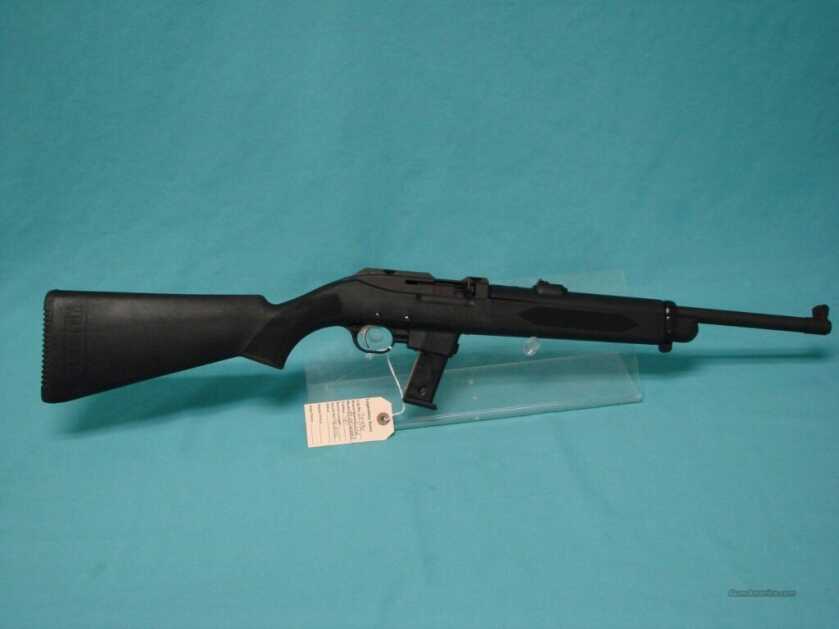
The Police Rifles were roughly the same size as an M1 Rifle, making them light and compact. Using the same magazines and ammo would simplify logistics and allow an officer to easily feed the gun in a fight. Ruger never produced magazines with a capacity beyond the handgun mags, so users were limited to 15 rounds for the 9mm version and 10 rounds for the 40 S&W version.
READ MORE: Holster with a Suppressor: Hush Holsters Review

The only police force that issued both the Ruger P series pistols and the Police Carbine was the Maryland State Police. The PC9 and PC40 failed to take off, and Ruger killed the series shortly after. However, the modern PC Carbine and Charger can be seen as descendants of the Police Carbine.
The Modern Patrol Rifle
These days, the patrol rifle of choice is the AR-15 in any configuration. The AR-15 simply makes the most sense. It’s lightweight, easy to shoot, affordable, and available everywhere. They’re easy to fix and obtain parts for, and they have many dedicated training programs. It just works and checks everything both police forces have. It’s always interesting to examine the past as a marker of how far we’ve come.
*** Buy and Sell on GunsAmerica! ***

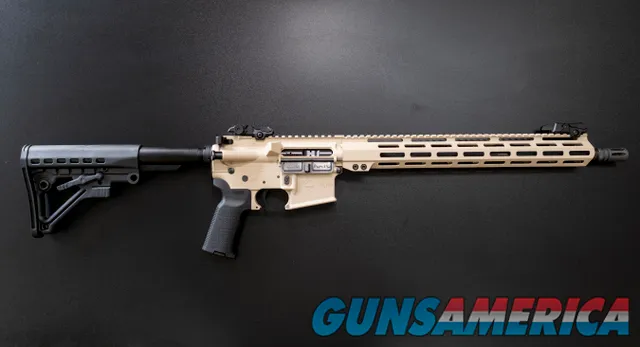
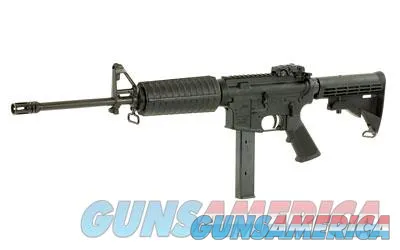
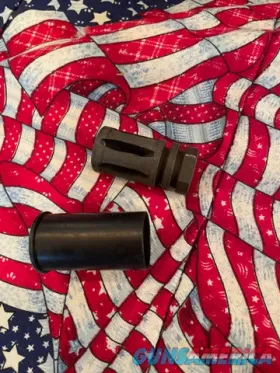
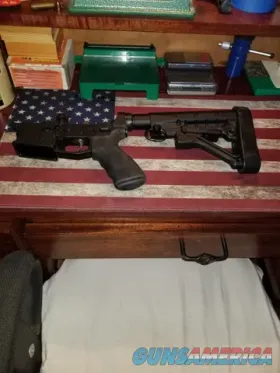
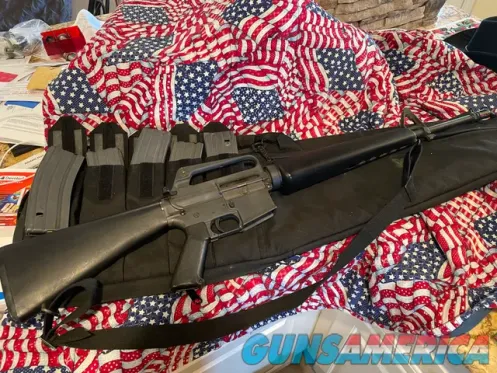
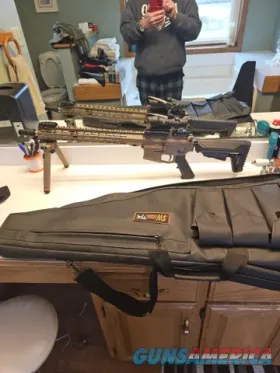
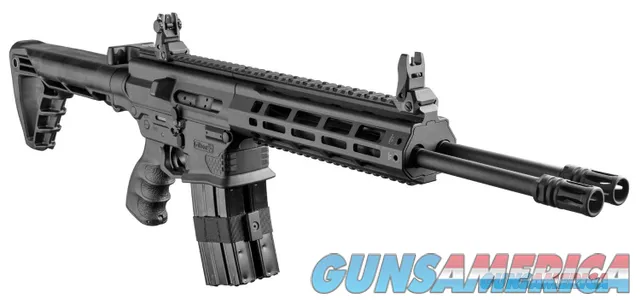
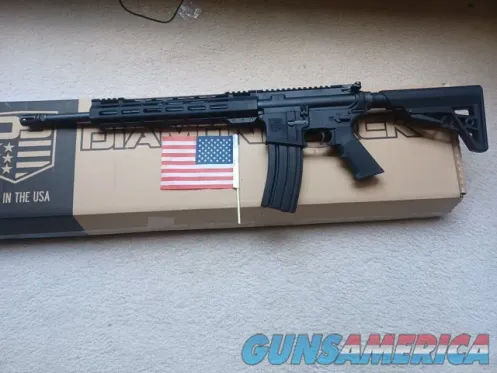
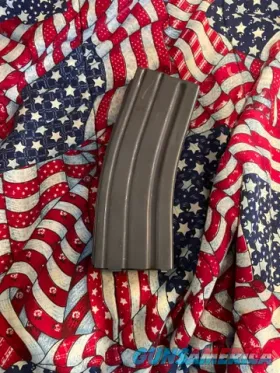
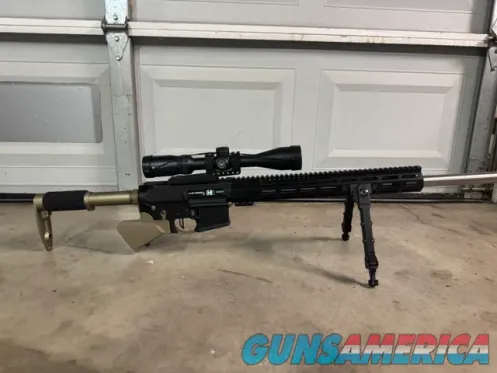

If memory serves me correctly, the A-Team did a lot of shooting with their Ruger Mini 14s but seldom killed anybody.
The Ruger Mini 14 was incapable of permanently disabling an adversary. Source: The A-Team
My old department was very reluctant to adopt a patrol rifle, the only choice we had was a 12 gauge shotgun. It wasn’t until 2004 until the new director made the right decision and allowed all patrol officers to be certified with .223 ARs.
In the 80 s,we had a mixture of Patrol rifles.On one squad there were 4 Ruger mini 14.One Car15 and one AR180.